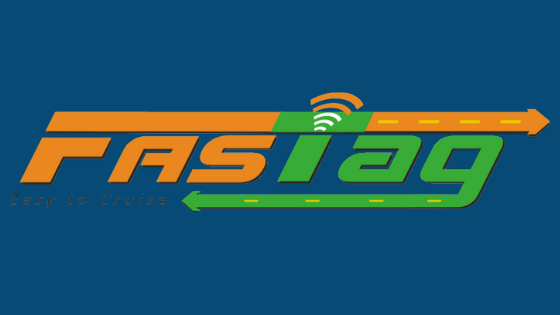The second wave of COVID-19 has sharply increased the demand for oxygen. Indeed, the record consumption of oxygen in treating COVID patients has led to some hospitals and health care running completely out of oxygen. The oxygen shortages resulted into deaths of COVID patients. It has drawn the attention on the production as well as the supply of the life-sustaining element.
It’s not that only India is facing oxygen shortages, but other countries too. In the United States, COVID-19 hotspots have faced severe challenges ensuring their oxygen supply is adequate to meet the needs of patients. It is an industry with just a small group of producers, who functions on a model of plants at their locations and at major customer sites, specifically steel plants. The total demand for medical oxygen was thus just a fraction of total output. The ratio now has changed with the increase in the number of COVID-19 patients in the second, deadlier wave. Many hospitals are running of oxygen, medicines and beds.
To address the increase in demand for medical oxygen, the government has undertaken important measures to increase the production, improving oxygen storage at the last mile and streamline the distribution & supply of the oxygen by enhancing tanker availability, infrastructure across the nation. To ensure an amazing customer experience, logistics companies need to diligently manage their pickup, shipping and last mile delivery processes. Top Logistics company in Delhi adopts this approach and delivers top customer care services at the point of transfer, driver, vehicle and route management as well as service offerings.
Oxygen availability in hospitals is increased by increasing production capacity and production, establishing PSA (Pressure Swing Adsorption) Plants, import of LMO (Liquid Medical Oxygen) from Overseas and Procurement of Oxygen Concentrators. For improving tanker availability to streamline transportation, Argon and Nitrogen tankers have been converted, containers & tankers have been imported, domestic manufacturing of tankers is increased, air & rail transportation of tankers is being done to decrease turn-around time.
Important steps to increase the oxygen supply in hospitals
There is a high demand of oxygen in hospitals. Logistics plays the important role in increasing the supply of oxygen in hospitals. Government has taken some essential steps to streamline the supply and availability of oxygen cylinder in country. Now there is no restriction will be forced on the movement of Medical Oxygen between the States and transport authorities and logistics company in Mumbai shall be instructed to allow free inter-state movement of oxygen carrying vehicles. Also, oxygen manufacturers and suppliers are not restricted to limit the oxygen supplies only to the hospitals in the State/ UT they are located in.
Oxygen Digital Tracking System (ODTS) has been established for real time monitoring. The driver availability is being improved with training of MHV drivers. To enhance oxygen storage, number & capacity of the cryogenic tankers at hospitals is being improved and oxygen cylinders are being obtained. Relaxation of GFR (General Financial Rules) has been implemented to enable faster procurement of crucial medical supplies.
With the increasing humanitarian demand for oxygen, however, some oxygen suppliers have started the reprocessing of their industrial grade manufacturing amenities to produce medical oxygen that meets the stringent needs for medical purpose. They have already starting the process to increase the supply. In just a short period of a few months, an African manufacturer has successfully converted 8,000 industrial oxygen cylinders into medical oxygen. But successful efforts like this don’t happen without advanced preparation and planning, supported by technology.
Supply and demand of medical oxygen
The demand for medical oxygen usually follows a recurrent pattern and suppliers also follow the same Market data and other indicators are also used to forecast supply and demand. This allows them build up stock during the slow months so they’ll have sufficient amount for the period when demand is very high. However, the pandemic has caused a spike that has made standard forecasting pattern essentially unusable.
To cope up with the rising demand and availability of adequate and uninterrupted supply of Medical Oxygen, suppliers need to review forecasting models frequently, even daily at times, to know the demand of number of oxygen tanks they have readily available for storage, the number of tanks still with consumers. They also need to understand other important data such as manufacturing capacity, warehouse capacity and distribution processes. They should also stay in touch with logistics companies to maintain the smooth transportation of oxygen. Leading logistics company in Delhi is also helping oxygen manufacturers to deliver the oxygen to hospitals on time.
As manufacturing companies review and forecast the trend, they should keep a few important things in mind. They should not ignore the maintenance schedules and also consider extra usage especially during the pandemic. Breakdowns also restrict the supply. They should have an efficient management system to keep a count on returned empty cylinders.
They also need to manage team to do complete and thorough inspection to ensure that all returned cylinders are safe and will not fail. Also, they have to check as breakdown of how many need repairs or certification, and how many cylinders are completely ready to be filled. Manufacturing companies have to evaluate and optimize routing and turnaround duration as much as possible. With increasing demand, each cylinder is precious, so careful routing will ensure cylinders will not remain on a truck or warehouse for longer time.
Of course, oxygen manufacturing companies and suppliers are not the only organizations that are responsible for smooth supply of oxygen. Organizations both up and down the supply will have to plan together to meet their own customers’ demands. Cylinder manufacturing companies will likely see rise in demand from oxygen suppliers, at the same time metal production operations that use oxygen to make parts still require a steady supply to keep on making as much as necessary of their own products.
If industrial oxygen manufacturers and suppliers reprocess to also serve the medical industry, they will need to keep their customers and supplier informed, because their schedules, too, may get affected. This requires planning and preparation to avoid disruptions.
Technology can play a significant role in forecasting and management during this pandemic time. ERP (Enterprise resource planning) enables organizations to follow a single pattern for the complete operation from predicted demand, present stock availability to supplying company’s lead times, material requirements, unforeseen event stock requirements, expenditure and storage capacity constraints.
ERP becomes even more effective when it’s specialized to perform within the exclusive operating model of a business. MRP (Material Requirements Planning) capabilities allow businesses to meet expected demand, improved factory capacity and forecast resource as well as labor needs. MOM (Manufacturing Operations Management) can also be used to simplify resource deployment, analytics for further optimization and minimize waste.
In this way, oxygen manufacturing companies aren’t only responsible to maintain the oxygen supply chain in the future. Manufacturers can see clearly which jobs should be given priority and where oxygen supplies should be rationalized. While the current oxygen supply shortage in hospitals is a humanitarian crisis, best technology platforms like ERP can help suppliers and their supply chains to meet the demand, plan for the future and deliver much needed medical supplies.




